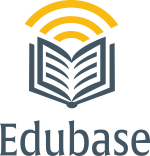Las pedagogías activas y el uso de los TICs en contexto universitario: ¿una combinacion posible?
DOI:
https://doi.org/10.7213/1981-416X.17.052.DS08Palabras clave:
Pedagogias ativas. TIC. Aprendizagem ativa. Ensino superior.Resumen
Las pedagogías activas y las tecnologías de información y comunicación para la enseñanza están cada día más presentes en el ámbito universitario. Una amplia literatura científica sustenta los impactos positivos sobre el aprendizaje de ambos elementos. Sin embargo, el número de docentes que hacen un uso combinado y simultáneo de ellos resulta ser bajo. La principal razón evocada por no hacerlo es el desconocimiento de los TICs que podrían ser utilizadas con las pedagogías activas.
Descargas
Citas
ARUM, R.; ROKSA, J. Aspiring adults adrift: tentative transitions of college graduates. Chicago: University of Chicago Press, 2014.
BACHY, S.; LEBRUN, M.; SMIDTS, D. Un modèle-outil pour fonder l’évaluation en pédagogie active: impact d’une formation sur le développement professionnel des enseignants. Revue Internationale de Pédagogie de L’Enseignement Supérieur, v. 26, n. 1, 2010. Disponível em: <https://ripes.revues.org/307>. Acesso em: abr. 2017.
BATES, T. National strategies for e-learning in post-secondary education and training. Paris: UNESCO/IIEP, 2001.
BONWELL, C.; EISON, J. Active learning: creating excitement in the classroom. ASHE-ERIC Higher Education Report No.1. Washington, D.C.: The George Washington University, 1991.
BUCKLEY, C. A. et al. Students approaches to study, conceptions of learning and judgments about the value of networked technologies. Active Learning in Higher Education, n. 11, p. 55-65, 2010.
CARR, R.; PALMER, S.; HAGEL, P. Active learning: the importance of developing a comprehensive measure. Active Learning in Higher Education, v. 16, n. 3, p. 173-186, 2015.
CHEN, H. L.; LATTUCA, L. R.; HAMILTON, E. R. Conceptualizing engagement: contributions of faculty to student engagement in engineering. Journal of Engineering Education, v. 97, n. 3, p. 339-353, 2008.
ENGLISH, M.; KITSANTAS, A. Supporting student self-regulated learning in problem and project-based learning. Interdisciplinary Journal of Problem-Based Learning, v. 7, n. 2, p. 128-150, 2013.
FREEMAN, S. et al. Active learning increases student performance in science, engineering, and mathematics. Proceeding of the National Academy of Sciences of the United States of America, v. 111, n. 23, p. 8410-8415, 2014. Disponível em: <http://www.pnas.org/content/111/23/8410.abstract>. Acesso em: abr. 2017.
KARSENTI, T. et al. Usage des TIC en pédagogie universitaire: point de vue des étudiants. Revue Internationale des Technologies en Pédagogie Universitaire, v. 8, n. 3, p. 6-19, 2011.
KIRKUP, G.; KIRKWOOD, A. Information and communications technologies (ICT) in higher education teaching – a tale of gradualism rather than revolution. Learning, Media and Technology, v. 30, n. 2, p. 185-199, 2005.
KNIGHT, J. Distinguishing the learning approaches adopted by undergraduates in their use of online resources. Active Learning in Higher Education, v. 11, n. 1, p. 67-76, 2010.
KOZANITIS, A.; DESBIENS, J. F. Exploring the combined effects of internal and external sources of motivation in the context of an outcome-based education for Canadian engineering students. Journal of Engineering Education, v. 32, n. 5(A), p. 1847-1858, 2016.
KYNDT, E. et al. The perception of workload and task complexity and its influence on students’ approaches to learning: a study in higher education. European Journal of Psychology of Education, v. 26, n. 3, p. 393-415, 2011.
LAMEULE, G. Les effets de l’usage des technologies d’information et de communication en formation d’enseignants, sur la construction des postures professionnelles. Savoirs, n. 17, p. 73-94, 2008.
LAMEULE, G.; LOISY, C. La pédagogie universitaire à l’heure du numérique: questionnement et éclairage de la recherche. Louvain-la-Neuve: De Boeck, 2014.
MILLER, R. L. et al. Promoting student engagement (vol 1): programs, techniques and opportunities. 2011. Disponível em: <http://teachpsych.org/Resources/Documents/ebooks/pse2011vol1.pdf>. Acesso em: abr. 2017.
MONSAKUL, J. A research synthesis of instructional technology in higher education. In: MCFERRIN, K. et al. (Org.). Proceedings of Society for Information Technology & Teacher Education (SITE) International Conference 2008. Chesapeake: AACE, 2008. p. 2134-2139.
PRINCE, M. Does active learning work? A review of the research. Journal of Engineering Education, v. 93, n. 3, p. 223-231, 2004.
ROGERS, G. History, learning technology and student achievement: making the difference? Active Learning in Higher Education, v. 5, n. 3, p. 232-247, 2004.
ROGERS, P. L. Traditions to transformations: the forced evolution of higher education. AACE Journal, v. 9, n. 1, p. 47-60, 2001.
ROMERO, M.; LAFERRIÈRE, T. Usages pédagogiques des TIC: de la consommation à cocréation participative. Vitrine Technologie Éducation, 2015. Disponível em: <https://www.vteducation.org/fr/articles/collaboration-avec-les-technologies/usages-pedagogiques-des-tic-de-la-consommation-a-la>. Acesso em: abr. 2017.
SMART, K. L.; CSAPO, N. Learning by doing: engaging students through learner-centered activities. Business Communication Quartely, v. 70, n. 4, p. 451-457, 2007.
TURNEY, C. S. M. et al. Using technology to direct learning in higher education: the way forward. Active Learning in Higher Education, v. 10, n. 1, p. 71-83, 2009.
WANNER, T. Enhancing student engagement and active learning through just-in-time teaching and the use of PowerPoint. International Journal of Teaching and Learning in Higher Education, v. 27, n. 1, p. 154-163, 2015.
Descargas
Publicado
Cómo citar
Número
Sección
Licencia
O(s) autor(es) transfere(m), por meio de cessão, à EDITORA UNIVERSITÁRIA CHAMPAGNAT, pessoa jurídica de direito privado, inscrita no CNPJ/MF sob o n.º 76.659.820/0009-09, estabelecida na Rua Imaculada Conceição, n.º 1155, Prado Velho, CEP 80.215-901, na cidade de Curitiba/PR, os direitos abaixo especificados e se compromete a cumprir o que segue:
- Os autores afirmam que a obra/material é de sua autoria e assumem integral responsabilidade diante de terceiros, quer de natureza moral ou patrimonial, em razão de seu conteúdo, declarando, desde já, que a obra/material a ser entregue é original e não infringe quaisquer direitos de propriedade intelectual de terceiros.
- Os autores concordam em ceder de forma plena, total e definitiva os direitos patrimoniais da obra/material à EDITORA UNIVERSITÁRIA CHAMPAGNAT, a título gratuito e em caráter de exclusividade.
- A CESSIONÁRIA empregará a obra/material da forma como melhor lhe convier, de forma impressa e/ou on line, inclusive no site do periódico da EDITORA UNIVERSITÁRIA CHAMPAGNAT, podendo utilizar, fruir e dispor do mesmo, no todo ou em parte, para:
- Autorizar sua utilização por terceiros, como parte integrante de outras obras.
- Editar, gravar e imprimir, quantas vezes forem necessárias.
- Reproduzir em quantidades que julgar necessária, de forma tangível e intangível.
- Adaptar, modificar, condensar, resumir, reduzir, compilar, ampliar, alterar, mixar com outros conteúdos, incluir imagens, gráficos, objetos digitais, infográficos e hyperlinks, ilustrar, diagramar, fracionar, atualizar e realizar quaisquer outras transformações, sendo necessária a participação ou autorização expressa dos autores.
- Traduzir para qualquer idioma.
- Incluir em fonograma ou produção audiovisual.
- Distribuir.
- Distribuir mediante cabo, fibra ótica, satélite, ondas ou qualquer outro sistema que permite ao usuário realizar a seleção da obra ou produção para recebê-la em tempo e lugar previamente determinados por quem formula a demanda e nos casos em que o acesso às obras ou produções se faça por qualquer sistema que importe em pagamento pelo usuário.
- Incluir e armazenar em banco de dados, físico, digital ou virtual, inclusive nuvem.
- Comunicar direta e/ou indiretamente ao público.
- Incluir em base de dados, arquivar em formato impresso, armazenar em computador, inclusive em sistema de nuvem, microfilmar e as demais formas de arquivamento do gênero;
- Comercializar, divulgar, veicular, publicar etc.
- Quaisquer outras modalidades de utilização existentes ou que venham a ser inventadas.
- Os autores concordam em conceder a cessão dos direitos da primeira publicação (ineditismo) à revista, licenciada sob a CREATIVE COMMONS ATTRIBUTION LICENSE, que permite o compartilhamento do trabalho com reconhecimento da autoria.
- Os autores autorizam a reprodução e a citação de seu trabalho em repositórios institucionais, página pessoal, trabalhos científicos, dentre outros, desde que a fonte seja citada.
- A presente cessão é válida para todo o território nacional e para o exterior.
- Este termo entra em vigor na data de sua assinatura e é firmado pelas partes em caráter irrevogável e irretratável, obrigando definitivamente as partes e seus sucessores a qualquer título.
- O não aceite do artigo, pela EDITORA UNIVERSITÁRIA CHAMPAGNAT, tornará automaticamente sem efeito a presente declaração.












